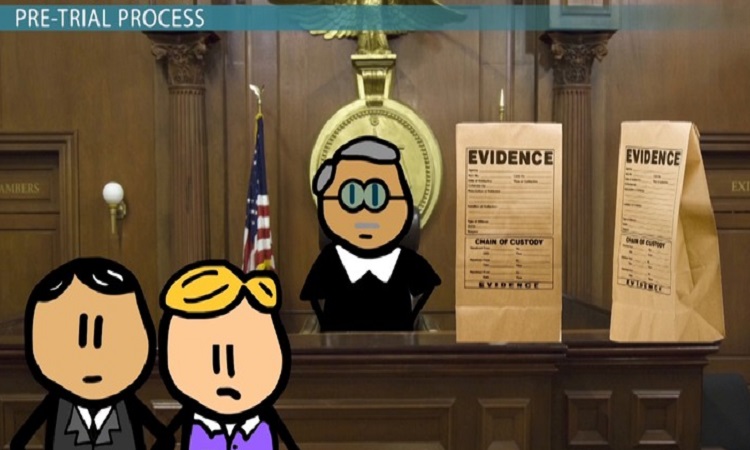
One of the foremost common questions we hear when people call our office for advice is: “I have a pretrial next week, what’s getting to happen?” and the solution is: “It depends.” What the Heck happens at the Pretrial Conference?
What the Heck happens at the Pretrial Conference?
The intention of a pretrial conference is to allow the prosecutor and the defence attorney to sit down and discuss whether a case is going to trial or, instead, if it is often resolved through a plea bargaining. It usually involves the prosecutor making an offer to settle the case short of trial, and the defence attorney discussing this offer with the client to help him, or she decides whether or not it is an acceptable way to resolve the case. While each country has a bit different procedures, most counties, including Dane, tend to schedule a pretrial about 4–6 weeks after the initial appearance (or the arraignment in felony cases). Lets learn what is a pretrial conference and its importance to know in today’s world.
In many legal process, the prosecutor will have to provide the defence with all the relevant documents and police reports ahead of a pretrial conference, so that the two can have a meaningful conversation. If not, police reports or other information will generally be provided to the defence attorney at the pretrial conference. Then a second court date will be scheduled where the defence will have to decide whether or not they will accept the prosecutor’s settlement offer or instead want to proceed to trial.
If the two sides do reach an agreement, it can be possible in some cases-particularly those involving less serious misdemeanour charges-to resolve the case at the pretrial conference. In such cases, a judges’ will permit the Defendant to enter a plea at the pretrial conference and will sentence him or her at that time. In more serious cases, where overtime is required to organize sentencing arguments, the court will generally schedule a plea and sentencing hearing for a later date.
If you are facing a criminal charge, and have a pretrial conference coming up, you must get an experienced attorney to assist you. It is the stage, in such criminal cases where deals are worked out, and having someone who understands the strength of the evidence in a given case, as well as how prosecutors, judges and juries are likely to look at such evidence, is crucial to getting the simplest result. If you are in this position, make sure to contact a local attorney before your pretrial conference so that they can review the evidence in your case and work with you to get the best outcome possible.
Similar requirements are imposed on prosecutors. The prosecution must tell the Defendant before the trial of its intention to use certain evidence, such as evidence obtained as a result of a search or seizure, wiretap, or another surveillance mechanism; evidence culled from a confession, admission, or statement made by the Defendant; and evidence concerning a lineup, show-up, picture, or voice identification of the Defendant.
Pretrial proceedings vary from jurisdiction to jurisdiction. In some jurisdictions, courts have bifurcated the pretrial into dispositional conferences and trial management conferences. In St. Paul, Minnesota, for instance, the district court schedules an attempt management conference to debate administrative aspects of the case, like scheduling. The court’s decision also schedules a dispositional conference during which the parties may discuss the likelihood of a plea bargaining or settlement. If there is no agreement between the parties is forthcoming at the dispositional conference, the case proceeds to trial, and therefore the court schedules no further meetings between the parties until trial. The parties are, nonetheless, free to continue negotiating, and they also may request a special pretrial hearing if an issue arises after the conference but before trial.
The first pretrial within us, it was held in Michigan in 1929. Over the years, as courts became more crowded, the pretrial became more important. Pretrial conferences saved valuable time for courts and juries by narrowing the main target of the trial and resolving preliminary matters. They can assist the court within the fair and impartial administration of justice by facilitating discovery and reducing the element of surprise at trial. Pretrial conferences are so important in civil cases, that a court may order litigants to seems at a pretrial and impose fines on them if they refuse to seem.
848 total views, 3 views today

